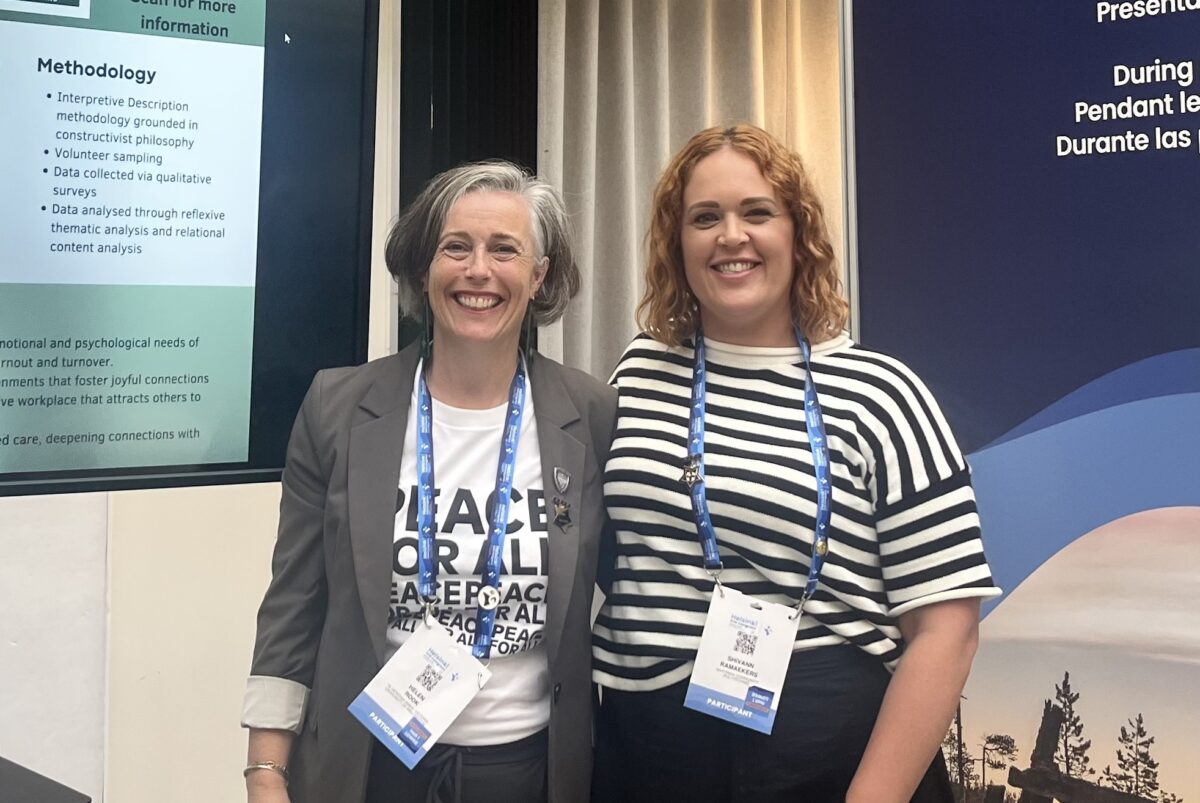It’s increasingly rare to read articles that highlight the rewarding aspects of being a nurse.
One reason for this is that most articles and research, both in mainstream media and nursing publications, focus primarily on the challenges in nursing. We hear a lot about heavy workloads, understaffing, the difficulty for newly graduated nurses in finding jobs in New Zealand, and the ongoing exodus of nurses to Australia.1
Stories of burnout, compassion fatigue and even violence against nurses appear frequently in the nursing and general media.2 Even as we write this, Te Whatu Ora nurses across Aotearoa are taking collective action to advocate for safer staffing, better support for new graduates and fair recognition of their work.3
However, the more we focus on the negative stories about nursing, the more we solidify the belief that nursing is a burdensome profession. This phenomenon is referred to as “confirmation bias” — the tendency to seek out information that supports our existing beliefs.4
If all we hear is how hard nursing is, we begin to believe that it must be unbearable, and that no one would want to pursue it. Yet, despite the challenges, thousands of people still choose nursing as a career and work in the field. Why? There may be many reasons, including pragmatic economic drivers, but it can also be because of the numerous rewards, including the privilege of making a real, lasting difference in people’s lives.

We are not saying that nursing is a career for everyone, nor are we saying that it is easy. To be a nurse demands resilience, adaptability and fortitude, all the while being able to provide expert clinical skills, empathy and compassion to others.
As a nurse, you are often part of the most critical moments of people’s lives, witnessing adversity in various forms while navigating a health-care environment filled with high pressure, emotional strain and relentless workloads.
Building resilience can make a difference to how we cope with these challenges. Studies indicate that having resilience improves nurses’ abilities to navigate adversity, and adapt to various situations.5 In fact, being more resilient may even reduce your risk of experiencing burnout, compassion fatigue and mental health problems such as post-traumatic stress disorder and depression.6, 7
If all we hear is how hard nursing is, we begin to believe that it must be unbearable, and that no one would want to pursue it.
While it’s essential to acknowledge the challenges of nursing, it’s equally important to consider how resilience can be sustained through positive experiences, such as the moments of joy and the fulfilment that can be found in nursing. Joy often comes from having supportive teams and opportunities for professional growth, feeling valued and knowing that your work has purpose.8, 9, 10, 11, 12
You might be thinking, “But the health-care context doesn’t make me feel valued,” or “I don’t work in a supportive team.” But let’s put those thoughts aside for a moment and consider the concept of joy with a small “j”. Joy with a small “j” doesn’t always come from grand gestures or ideal work environments; it can be found in the simple, everyday moments, like a colleague’s encouragement, or the satisfaction of identifying a clinical sign, or sharing a joke with someone in your care.
If these small but significant micro-moments of joy can be understood and even cultivated, there is the potential to positively impact workplace culture and grow positive connections with colleagues and those whom we support and care for.
Where our research begins
We’d like you to take some time to consider how joy presents in your practice. To help with this, try thinking of joy as a natural response to experiences that make you feel stronger, more motivated and more capable.
Think about a time in your practice when you have felt especially confident or empowered — these may be moments which have increased your ability to act as a nurse or allowed you to practise in a way that aligns with your core values. Stay with that thought, because this is where our research begins.
We want to know the sources of joy for our nursing workforce, how joy is identified and if joy could potentially impact the decision of nurses to stay in the profession.
Our research seeks to explore the experiences of joy among nurses working in clinical practice in Aotearoa, New Zealand. We want to know the sources of joy for our nursing workforce, how joy is identified and if joy could potentially impact the decision of nurses to stay in the profession.
By answering these questions, we believe we could shift the narrative and start to create a health-care environment where joy thrives, and where we build systems that uplift, empower and sustain nurses.
If you are a registered nurse currently working in clinical practice, with direct patient contact, in Aotearoa, New Zealand, and you have experiences of joy from your clinical practice you would like to write about and contribute to this research, please follow this link.
We have ethical approval from the Te Herenga Waka — Victoria University of Wellington Human Ethics Committee (HE000227) to undertake this study.
If you have any questions, please contact [email protected].
Shivann Ramaekers, RN, MNS, is a senior nursing lecturer at Whitireia Polytechnic and doctoral candidate at Te Herenga Waka — Victoria University of Wellington.
Helen Rook, RN, PhD, is tumuaki — head of school at Te Puna Hauora — School of Health, Te Herenga Waka — Victoria University of Wellington.
References
- Longmore, M. (2024). Internationally qualified nurses behind 12,000 surge to Australia.
- Longmore, M. (2025). Emergency nurses call for more security counselling after strangulation attempt.
- New Zealand Nurses Organisation. (2025, September 1). Battle for patient safety continues with more nurses strikes [Press release].
- Peters, U. (2022). What is the function of confirmation bias? Erkenntnis, 87(3), 1351-1376.
- Foster, K., Cuzzillo, C., & Furness, T. (2018). Strengthening mental health nurses’ resilience through a workplace resilience programme: A qualitative inquiry. Journal of Psychiatric Mental Health Nursing, 25, 338–348.
- Cooper, A. L., Brown, J. A., & Leslie, G. D. (2021). Nurse resilience for clinical practice: An integrative review. Journal of Advanced Nursing, 77(6), 2623-2640.
- Hart, P. L., Brannan, J. D., & De Chesnay, M. (2014). Resilience in nurses: An integrative review. Journal of Nursing Management, 22(6), 720-734.
- Galuska, L., Hahn, J., Polifroni, E. C., & Crow, G. (2018). A Narrative Analysis of Nurses’ Experiences with Meaning and Joy in Nursing Practice. Nursing Administration Quarterly, 42(2), 154.
- Hahn, J., Galuska, L., Polifroni, E. C., & Dunnack, H. (2021). Joy and meaning in nurse manager practice: A narrative analysis. Journal of Nursing Administration, 51(1), 38-42.
- Leaf, C. M., & Murray, J. M. (2023). New Zealand emergency nurses’ perspectives and experiences of professional joy in clinical practice: An exploratory qualitative study. Australasian Emergency Care, 26(1), 59-65.
- Liske, C., Tutticci, N., & Diño, M. J. S. (2023). Joy at work and vocational identity during COVID-19: A structural equation model. Journal of Nursing Scholarship, 55(5), 1058-1067.
- Rutledge, D. N., Douville, S., Winokur, E., Drake, D., & Niedziela, D. (2021). Impact of engagement factors on nurses’ intention to leave hospital employment. Journal of Nursing Management, 29(6), 1554–1564.





